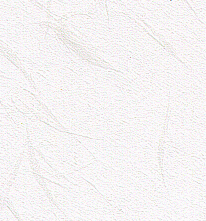



A version 3 or earlier browser can't correctly place the DHTML layers on this page, so you will have to page down about 15 in (40 cm) past these navigational links to get to the content each time you click to a new page.
If you wish to upgrade, go to Microsoft or Netscape.
Affirmative Action
Ageism
Anti-Semitism
The
Color of Fear
Classism
Colorism
Communication Techniques
Creating a Conducive Classroom
Climate
Critical Reading
Disabilities
Environmental Racism
Guilt
Heteronormativity
Imperialism
International Racism
Intervention Strategies for
Allies
How Do You Know What You Know?
Language
Racism
What is Race?
Rape Culture
Reproductive Rights
Sexism
Simulations
Surviving the Daily Indignities
Two Cultures
"White Bashing" and
"Male Bashing"
Racism's Effects on "Whites"
|
University Studies
Portland State University
|
© Copyright 2001 Jack C. Straton
Both courses focus heavily on race as the model for exploring the
consequences of interpersonal and institutional "isms,"
but gender or disability issues would serve as well. However, some
exploration of another oppression is helpful so that students can
see how the net of oppressions are mutually supportive (e.g., the
same people seem to always come out on top). We therefore spend a
few days on gender early in the sequence. (In the Values course we
also look at oppressive patterns in student-teacher-school dynamics
through reading Paulo Friere. ) They read See also Male Privilege. References:Paulo Friere (1970), "The Banking Concept of Education," The Pedagogy of the Oppressed, as reprinted in Ways of Knowing, 207-221, Continuum Pub. Co. Links:A portion of the Racial Intervention Story Exchange (RISE) focuses on closely related area of intervention across gender lines. The National Organization for Men Against Sexism is an activist organization of men and women supporting positive changes for men. NOMAS advocates a perspective that is pro-feminist, gay-affirmative, anti-racist, and committed to justice on a broad range of social issues including class, age, religion, and physical abilities. We affirm that working to make this nation's ideals of equality for all people a reality is the finest expression of what it means to be men. GENDER (SEE ALSO SEXUALITY BELOW)For an excellent overview of available resources
on gender studies - including feminist studies, gay, lesbian and
queer studies, the men's movement and "cybergender and techgender."
The Global Reproductive Health Forum provides
a range of articles, discussion lists, and other information
on reproductive rights - and women's and men's health in this
context. Put together through Harvard, it is one of best
websites of its kind available. The intersections of gender,
biology, and technology for example - point not only to
ethnic, gender and class issues, but also look to possess relevant
information for the range of courses offered in University Studies.
Another guide to feminist theory, offering
another range of resources - including reflections on ........................................................
non-fiction articles by and about asian/american
women
I also thought I'd include what I consider
to be (one) inversion of the whole notion of diversity.
Students and faculty may take interest in the auctioning of
egg and sperm "donors."
SEXUALITYLesbian, gay, bi-sexual Asian-American links
|